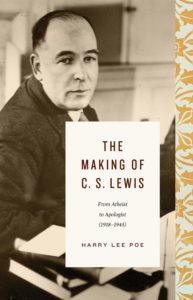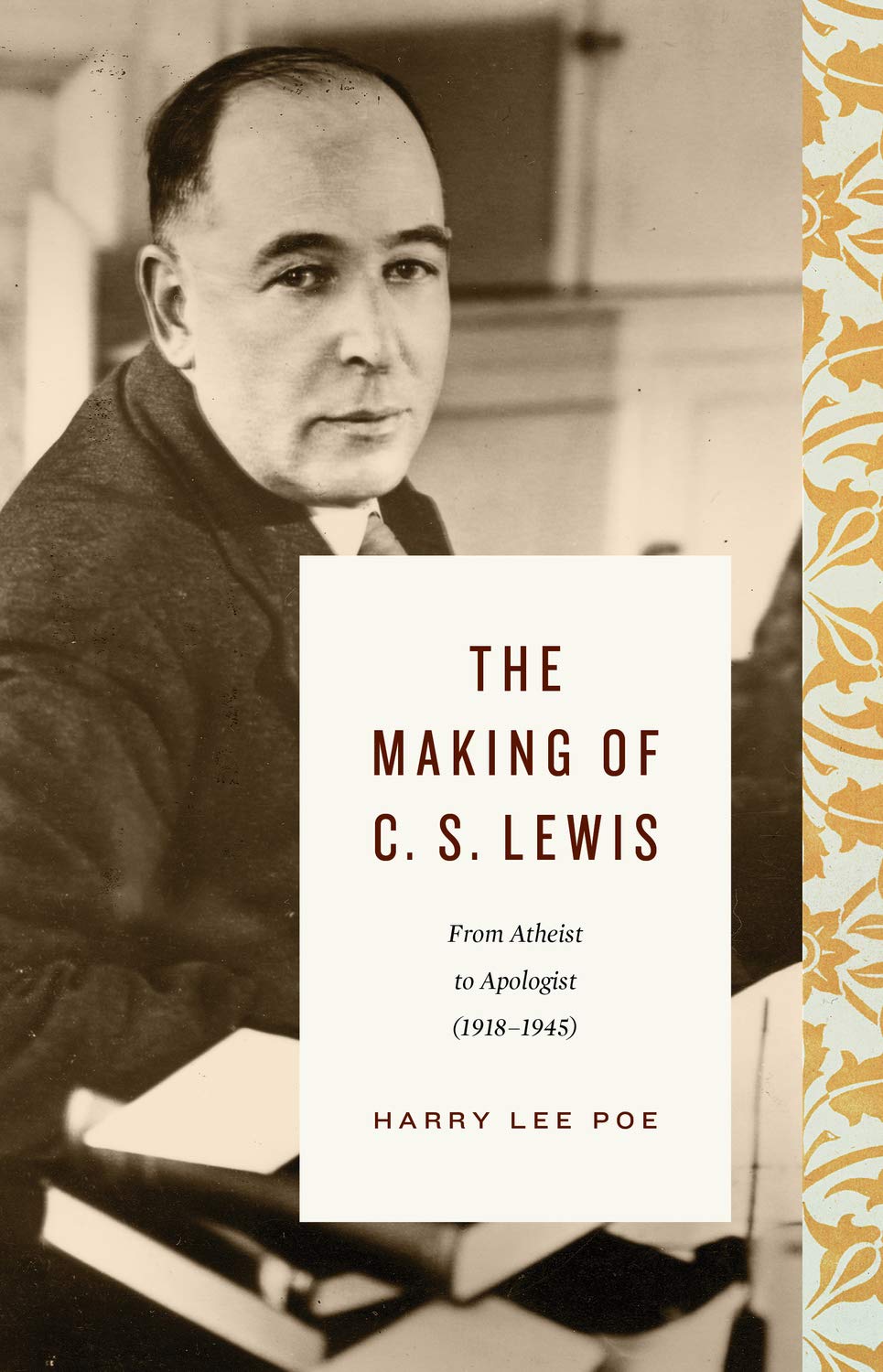
The Making of C. S. Lewis: From Atheist to Apologist (1918-1945), by Harry Lee Poe. Wheaton, IL: Crossway, 2021, 399 pages, $32.99.
For several years, “deconversions” have been a hot topic on social media as a succession of Christian celebrities—including pastors—have announced their departure from the faith. Apostasy is a tragic but not new phenomenon; one need look no further than the New Testament and Demas (2 Tim. 4:10). While writing this review, I am reading a biography of George Eliot, who abandoned the Christian faith and evangelical doctrine she once ardently espoused.
The current interest in evangelical deconversions makes it a good time to examine one of the more remarkable conversions in recent Christian history—that of C. S. “Jack” Lewis. Harry Lee Poe tells this unlikely story exceedingly well in The Making of C. S. Lewis, the second in a projected three-volume biography. His narrative covers the period from Lewis’s post World War I convalescence from severe battle wounds to the end of World War II, a period during which Lewis moved from atheist to theist, to Christian, and ultimately to formidable advocate of the faith.
Jack Lewis’s life was one of privilege and pain. During the Great Depression, when much of the world was in dire straits, he lived comfortably (217). His father, Albert Lewis, financially supported him well into adulthood, making it possible for him to pursue his Oxford studies. Albert, a lawyer, refrained from pressuring his son to follow in his profession. Instead, he encouraged his love for books—not only by purchasing them but also by becoming his conversation partner in discussing them. “In the end, Albert Lewis had the greatest role in the making of C. S. Lewis as a literary man” (127). In later years, with the arrogance of youth gone, Lewis would sadly recall that his stance toward his father was far from upright. He frequently deceived him regarding his use of money and other matters, withheld from him his true views about religion before his conversion, and spoke to others about him with contempt. Opportunities to set things right were gone, much to Lewis’s regret (340). Heartache was a traveling companion on Lewis’s journey to Christian maturity.
One of the excellent features of this book is the author’s helpful analysis and critique of Lewis’s works during this period, beginning with the publication of his first widely applauded and scholarly book, The Allegory of Love: A Study in Medieval Tradition (1936), and its study of medieval chivalry and the courtly love tradition. Poe says of this book: “In many ways, it is the only book Lewis ever wrote. All the other books flow from it like a stream” (151).
